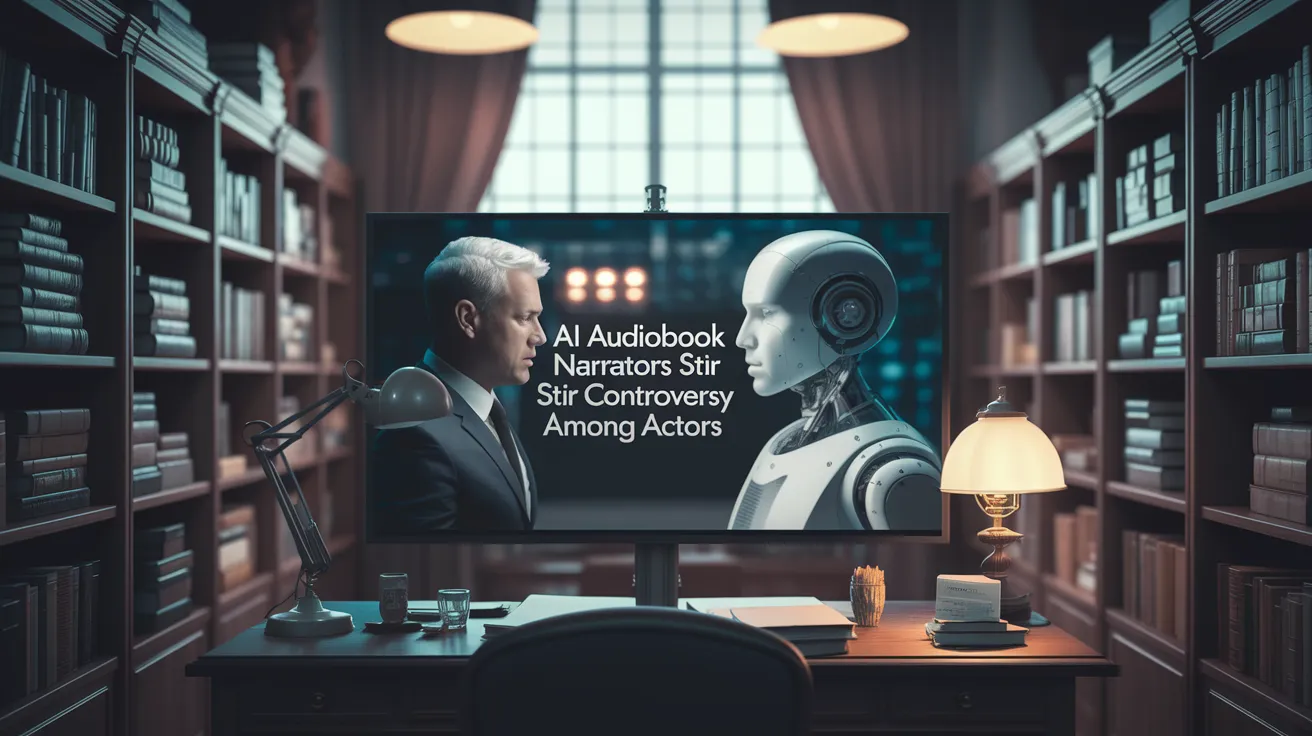AI Audiobook Narrators Stir Controversy Among Actors

Audible has empowered AI technology to transform the audiobook industry, allowing users to select AI-generated narrators for their listening needs. This shift, however, has left many actors in the audiobook field grappling with the potential implications for their profession.
Actors like Annabelle Tudor from Melbourne contend that the nuance and emotional depth inherent in human narration cannot be replicated by AI. Tudor, who has narrated 48 audiobooks, raises concerns about the capability of AI in accurately conveying intimate human experiences, arguing, “AI doesn’t know what an orgasm sounds like.”
The AI Audiobook Boom
With an explosion in demand for audiobook content—illustrated by a NielsenIQ report revealing that over half of Australian audiobook consumers have increased their listening habits—the industry is rapidly embracing AI. Major players like Apple and Amazon are leveraging AI to produce audiobooks quickly and affordably. While automation could streamline operations, critics worry that this could compromise quality and job security for human narrators.
Tudor’s apprehension echoes sentiments across the industry. Some fear that reliance on robot narrators could ultimately detract from the audience’s emotional connection and the art of storytelling itself.
Quality Concerns and Industry Reactions
Many narrators are expressing distrust in the quality of AI-generated content. Dorje Swallow, a successful narrator, articulated that AI cannot grasp the nuances required for quality storytelling—a sentiment echoed by peers who view AI-generated voices as inferior substitutes. According to Swallow, greater efficiency in production does come at a cost: “We’ve done the hard yards… to think you can just press a button and you’re going to get something of good quality is kind of laughable.”
In addition, as voice actors express frustration, prominent organizations are beginning to form in response to the potential threats posed by AI in the industry. Simon Kennedy, president of the Australian Association of Voice Actors, reported that new models of compensation for narrators are essential amid fears that AI will go unchecked, leading to reduced job opportunities.
Legal and Ethical Implications
As the conversation continues, the lack of regulations around AI-generated content poses significant challenges. Unlike the EU and many countries that have enacted legislation regarding AI-generated media, Australia lags behind, with calls for reforms surrounding data scraping, consent, and transparency still unanswered.
The rapid evolution of AI technology compels creators like writer Hannah Kent to address their own anxieties about ownership and originality. When it was revealed that pirated works, including Kent’s, were used to train AI systems, she lamented the overarching financial motives that could eclipse creative integrity.
Moving Forward
For authors and narrators, the rise of AI narration has sparked broader discussions about the creative industry’s future, pushing them to reconsider the values around storytelling. Tudor poignantly notes, “Can we just listen to people instead of robots?”
While auditors remain skeptical of AI’s ability to rival human narrators, it is undeniable that the industry stands at a crossroads where technological advancements and artistic expression must find a balance. Whether or not consumers can discern the difference between human and AI-generated narration may ultimately shape the industry’s path forward.